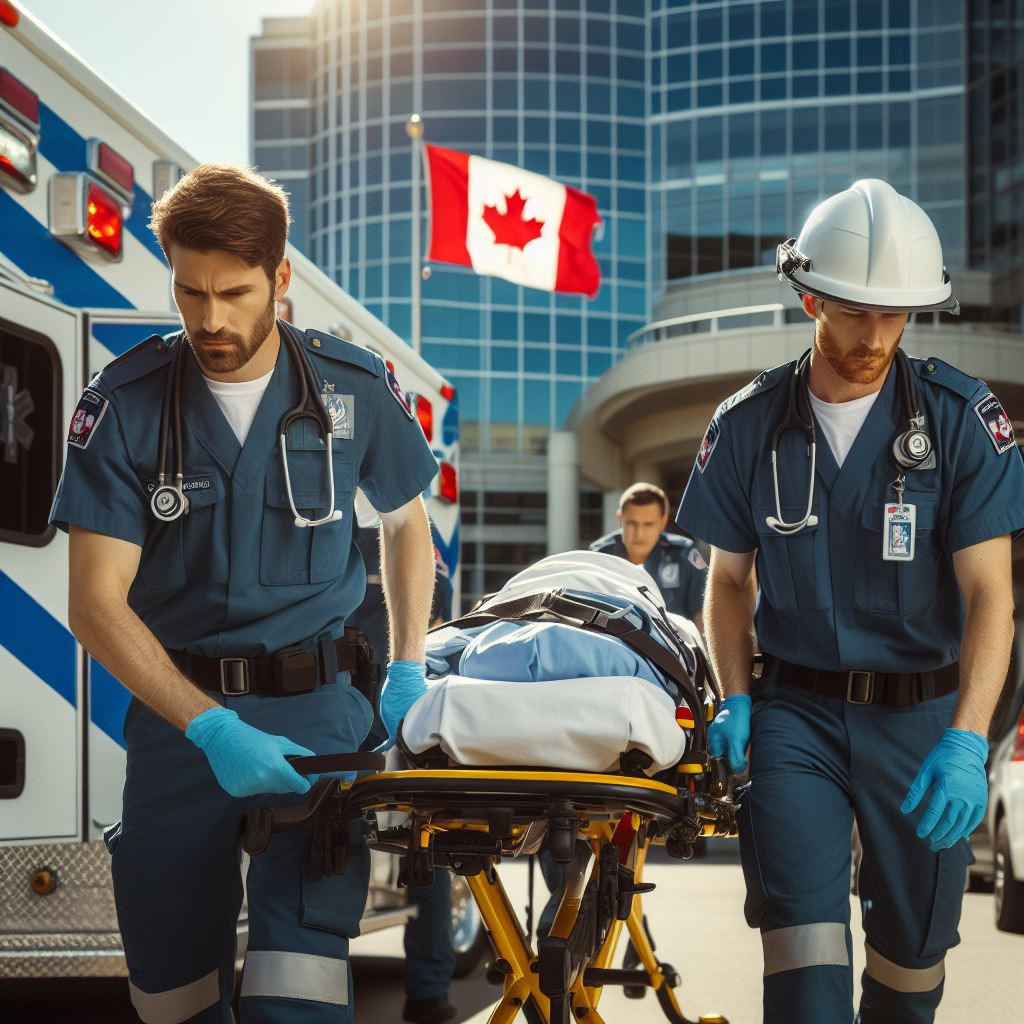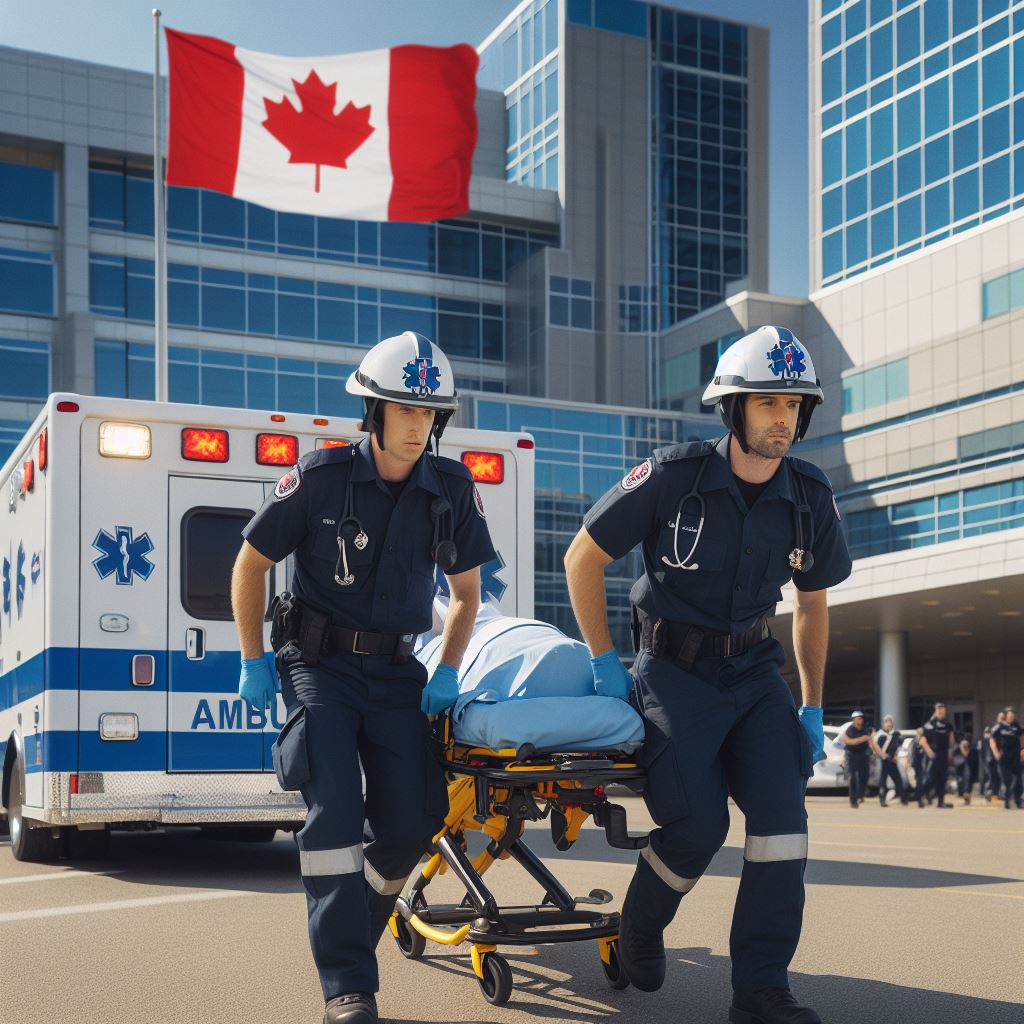Introduction
Public health officers play a crucial role in maintaining and improving the overall health of the community.
Their work directly impacts society by preventing diseases, promoting healthy lifestyles, and responding to public health emergencies.
In this blog post, we will delve into the daily responsibilities and challenges faced by public health officers.
Now that we understand the importance of public health officers, let’s explore what a typical day in their life looks like.
Morning routine
Public health officers start their day by reviewing and analyzing data on various health indicators.
They monitor disease outbreaks, vaccination rates, and healthcare facilities’ adherence to safety protocols.
This data-driven approach allows them to identify potential risks, gaps in healthcare delivery, and areas for improvement.
Fieldwork
Public health officers often visit communities to conduct health assessments, educate the public, and implement health promotion programs.
They collaborate with local organizations to address health disparities and develop strategies for disease prevention and health promotion.
This hands-on approach allows them to connect with the community and understand their specific health needs.
Crisis management
During emergencies, such as natural disasters or disease outbreaks, public health officers are at the forefront.
They coordinate with government agencies, healthcare providers, and community organizations to respond swiftly and effectively.
Their quick decision-making, communication skills, and ability to mobilize resources are crucial in safeguarding the public’s health.
Policy development
Public health officers work closely with policymakers to develop and implement health policies at the local, regional, and national levels.
They provide evidence-based recommendations to address public health issues and ensure the wellbeing of the population.
Their expertise and insights contribute to shaping public health strategies and regulations.
Public health officers play a multifaceted role in our society, ensuring the health and safety of the community.
Their work encompasses data analysis, community engagement, crisis management, and policy development.
By understanding their responsibilities and challenges, we can appreciate the vital contribution they make to public health.
Background and Education
Educational Requirements to Become a Public Health Officer
- Bachelor’s degree in public health or a related field is required to become a public health officer.
- Some educational programs may require coursework in biology, statistics, epidemiology, and environmental health.
- Advanced degrees such as a Master’s or Doctorate in public health can enhance career prospects.
Different Fields of Study or Degrees that Can Lead to this Profession
- Public Health: Offers a broad understanding of population health and disease prevention strategies.
- Epidemiology: Focuses on studying patterns and causes of diseases in populations.
- Biostatistics: Provides essential skills in analyzing health data and interpreting research findings.
- Environmental Health: Explores the impact of environmental factors on human health.
- Health Promotion: Focuses on developing strategies to improve health and well-being at a community level.
Additional Certifications or Training for Public Health Officers
- Certification in Public Health (CPH): This voluntary certification demonstrates expertise in public health knowledge and skills.
- First Aid and CPR Certification: Some public health officers may need to provide emergency medical assistance.
- Leadership and Management Training: Important for those in managerial or supervisory positions.
- Continuing Education: Public health officers must stay updated on emerging trends and developments in the field.
Embarking on a career as a public health officer begins with fulfilling educational prerequisites. A bachelor’s degree, often in public health or a related field, forms the initial milestone.
This degree mandates courses in biology, statistics, epidemiology, and environmental health.
Beyond the entry level, public health officers often opt for advanced degrees like a Master’s or Doctorate.
Such degrees deepen their comprehension of public health theories, research methodologies, and policies, unlocking avenues for higher positions and leadership roles.
Public health offers diverse fields, such as epidemiology, biostatistics, environmental health, and health promotion.
Certifications like the Certification in Public Health (CPH) and First Aid/CPR are invaluable, ensuring a robust skill set.
Unlock Your Career Potential
Visualize a clear path to success with our tailored Career Consulting service. Personalized insights in just 1-3 days.
Get StartedLeadership and management training are pivotal for managerial roles, fostering effective decision-making and team management.
Continuous education remains essential, ensuring public health officers stay abreast of emerging trends.
In essence, while a bachelor’s degree is the foundation, advancing education and certifications significantly elevate a public health officer’s career trajectory.
Read: Canadian Pharmacist Licensing Process
Responsibilities and Duties
Overview of Main Responsibilities and Duties
Public health officers have a wide range of responsibilities aimed at promoting community well-being.
They are responsible for designing and implementing public health programs to prevent and control diseases.
Public health officers supervise and coordinate the efforts of healthcare professionals and personnel.
They contribute to the development and evaluation of public health policies and guidelines.
Public health officers monitor and assess health trends to identify potential risks and prioritize interventions.
Role in Disease Prevention and Surveillance
Public health officers play a crucial role in disease prevention and surveillance.
They conduct routine inspections of public spaces to ensure compliance with health and safety regulations.
Public health officers develop and implement disease control measures, such as vaccination campaigns and disease screenings.
They investigate outbreaks and conduct contact tracing to limit the spread of infectious diseases.
Public health officers collaborate with healthcare providers and other stakeholders to develop strategies for early detection and containment.
Importance of Promoting Healthy Lifestyles and Community Well-being
Promoting healthy lifestyles and community well-being is a fundamental duty of public health officers.
They educate individuals and communities about healthy behaviors and encourage preventive measures.
Public health officers advocate for the availability of healthy food options and access to physical activity facilities.
They collaborate with schools, workplaces, and community organizations to implement health promotion initiatives.
Public health officers support the development and maintenance of mental health programs and services.
Involvement in Emergency Preparedness and Response
Public health officers are actively involved in emergency preparedness and response.
They develop emergency plans and protocols to effectively respond to public health crises and disasters.
Public health officers coordinate resources and logistics to ensure timely response and recovery.
They collaborate with emergency management agencies and healthcare facilities to coordinate response efforts.
Public health officers provide support and guidance to affected communities, addressing their immediate and long-term health needs.
In general, public health officers have diverse responsibilities and duties aimed at protecting and promoting community health.
Their work encompasses disease prevention, surveillance, promoting healthy lifestyles, and emergency response.
The role of public health officers is vital in ensuring the well-being and safety of communities.
Daily Routine
Start with an overview of a typical day for a public health officer
A day in the life of a public health officer is filled with constant activity and a variety of tasks.
From the moment they start their day, they are focused on ensuring the well-being of the community they serve.
Highlight the wide range of activities and tasks that may be encountered
The first task of a public health officer is to review any new reports or updates on potential health concerns within the community. This could include monitoring disease outbreaks or tracking the spread of infections.
Next, they may conduct field visits to investigate suspected contagious diseases. This involves interviewing patients, collecting samples, and coordinating with healthcare providers to control the outbreak.
In addition to their infectious disease work, public health officers also oversee vaccination programs.
This means organizing immunization campaigns, ensuring vaccine availability, and educating the public on the importance of getting vaccinated.
Public health officers also collaborate with other agencies and organizations to promote health education and awareness.
This might involve conducting workshops, giving presentations, or organizing community events to address specific health issues.
Discussing the need for flexibility and adaptability in daily routines
Flexibility and adaptability are key qualities for public health officers. Due to the nature of their work, their daily routines can be unpredictable and ever-changing.
They must be ready to respond to emergencies or urgent situations at a moment’s notice.
For example, if a major disease outbreak occurs, a public health officer’s routine may completely shift.
They may need to spend the entire day coordinating emergency response efforts, providing guidance to healthcare professionals, and updating the public on necessary precautions.
Furthermore, public health officers often have to juggle multiple tasks simultaneously. They must prioritize and allocate their time efficiently to ensure all essential responsibilities are fulfilled.
In short, a day in the life of a public health officer is dynamic and demanding.
Their daily routine involves a wide range of activities, including monitoring health reports, investigating diseases, coordinating immunization programs, and promoting health education.
Flexibility and adaptability are crucial to effectively handle the challenges of this profession.
Read: How to Become a Paramedic in Canada

Discover More: Day in Life of a Healthcare Admin in Canada
Challenges and Rewards
Challenges faced by public health officers
- Shortage of resources and funding often limits the effectiveness of public health interventions.
- Dealing with complex healthcare systems and navigating bureaucratic red tape can be frustrating.
- Public health officers face the challenge of addressing community health disparities and inequalities.
- Staying up-to-date with evolving diseases and emerging public health threats requires continuous learning.
- Managing public expectations and balancing ethical considerations can be difficult.
Rewards and fulfillment in the public health profession
- Improving the health and well-being of individuals and communities provides a deep sense of fulfillment.
- Public health officers have the opportunity to make a real difference in people’s lives.
- Building relationships and collaborating with diverse stakeholders create a sense of community and purpose.
- Public health work often involves being at the forefront of tackling new and challenging health issues.
- Contributing to the greater good and ensuring equitable healthcare access can be incredibly rewarding.
Positive impact of public health officers on communities
- Public health officers play a crucial role in promoting disease prevention and health promotion.
- They contribute to community education and empower individuals to take control of their own health.
- By coordinating efforts and implementing health policies, they can enhance population health outcomes.
- Public health officers help to identify and mitigate public health threats before they become major crises.
- They advocate for policies and programs that address social determinants of health and improve overall well-being.
Public health officers tackle daily challenges with limited resources, hindering effective interventions.
Navigating complex healthcare systems and bureaucratic red tape frustrates and consumes time. Addressing health disparities within communities is a daunting responsibility.
Continuous learning is crucial to stay effective, keeping up with evolving diseases and emerging threats.
Balancing public expectations with ethical considerations requires careful decision-making.
Despite challenges, the rewards and fulfillment in improving health and well-being make the work worthwhile.
Making tough decisions impacting individuals and communities demands a deep understanding of consequences.
Public health officers create a sense of community by building relationships and collaborating with diverse stakeholders.
Tackling new and challenging health issues keeps them engaged in a dynamic work environment.
Advocating for policies and programs addressing social determinants of health contributes to the greater good.
In fact, while facing daily challenges, public health officers positively impact communities, promoting disease prevention, improving access to healthcare, and addressing health disparities.
Their dedication deserves recognition and appreciation.
Read: Paramedics’ Role in Public Health Emergencies
Find Out More: Challenges Faced by Canadian Pharmacists
Personal Experiences
Sharing personal stories or experiences from public health officers
- As a public health officer, I vividly remember my first day on the job.
- I was assigned to a local community to investigate an outbreak of foodborne illness.
- Collaborating with epidemiologists, I conducted interviews to identify the source of contamination.
- It was a challenging task, but witnessing the impact of our work on affected individuals was rewarding.
- Another memorable experience was when I worked on an immunization campaign in a rural village.
- The community was initially hesitant, but through education and outreach, we gained their trust.
- Witnessing the joy and relief of families getting vaccinated was an incredible feeling.
- Public health officers often face difficult situations, but the satisfaction of making a difference makes it worthwhile.
Insights into real-life situations and projects
- Public health officers often work on diverse projects, such as disease surveillance and health promotion.
- One project I was involved in was implementing a smoking cessation campaign in collaboration with local organizations.
- We conducted awareness programs, provided access to resources, and offered support to smokers.
- By sharing success stories and testimonials, we encouraged individuals to quit smoking and improve their health.
- Another real-life situation I faced was during a natural disaster when I was deployed to provide emergency medical care.
- The devastation was immense, but working with a team to provide immediate aid was incredibly impactful.
- We set up temporary medical facilities, conducted health assessments, and ensured vulnerable populations received necessary care.
- Real-life situations require quick thinking, adaptability, and collaboration to address public health challenges effectively.
The key takeaways and lessons learned from these experiences
- Personal experiences as a public health officer have taught me valuable lessons.
- Communication and collaboration are essential for successful public health initiatives.
- Building trust with communities is crucial to overcoming hesitancy and resistance.
- Flexibility and adaptability are paramount in responding to ever-evolving public health situations.
- Public health work requires empathy and understanding to address the needs of diverse populations.
- Continuous learning and staying updated with scientific advancements are vital for effective decision-making.
- Lastly, self-care and resilience are important to prevent burnout and sustain long-term commitment.
- Personal experiences of public health officers offer valuable insights for aspiring and current professionals.
Read: Understanding Paramedic Salary Ranges in Canada
Gain More Insights: Paramedics and Community Outreach Programs
Explore Further: Role of Pharmacists in Public Health
Conclusion
Recap the key points discussed in the blog post
In this blog post, we have explored the daily life of a public health officer.
We learned about their diverse responsibilities, such as conducting investigations, implementing interventions, and monitoring health trends.
Emphasize the importance of public health officers in maintaining community health
Public health officers play a crucial role in safeguarding the well-being of our communities.
Their work in disease prevention, health promotion, and emergency response ensures that we stay healthy and safe.
Encourage readers to consider public health as a career option
If you have a passion for improving the health of others and are driven to make a meaningful impact, consider a career in public health.
Join the dedicated team of public health officers and be part of shaping a healthier future for our society.
In summary, public health officers are the unsung heroes working tirelessly behind the scenes to ensure our communities are healthy and thriving.
Their dedication and expertise are vital in protecting us from diseases, promoting overall well-being, and responding to public health crises.
Take a moment to appreciate the crucial role they play and consider joining their ranks in making a difference in the field of public health.
Together, we can build healthier communities for generations to come.




